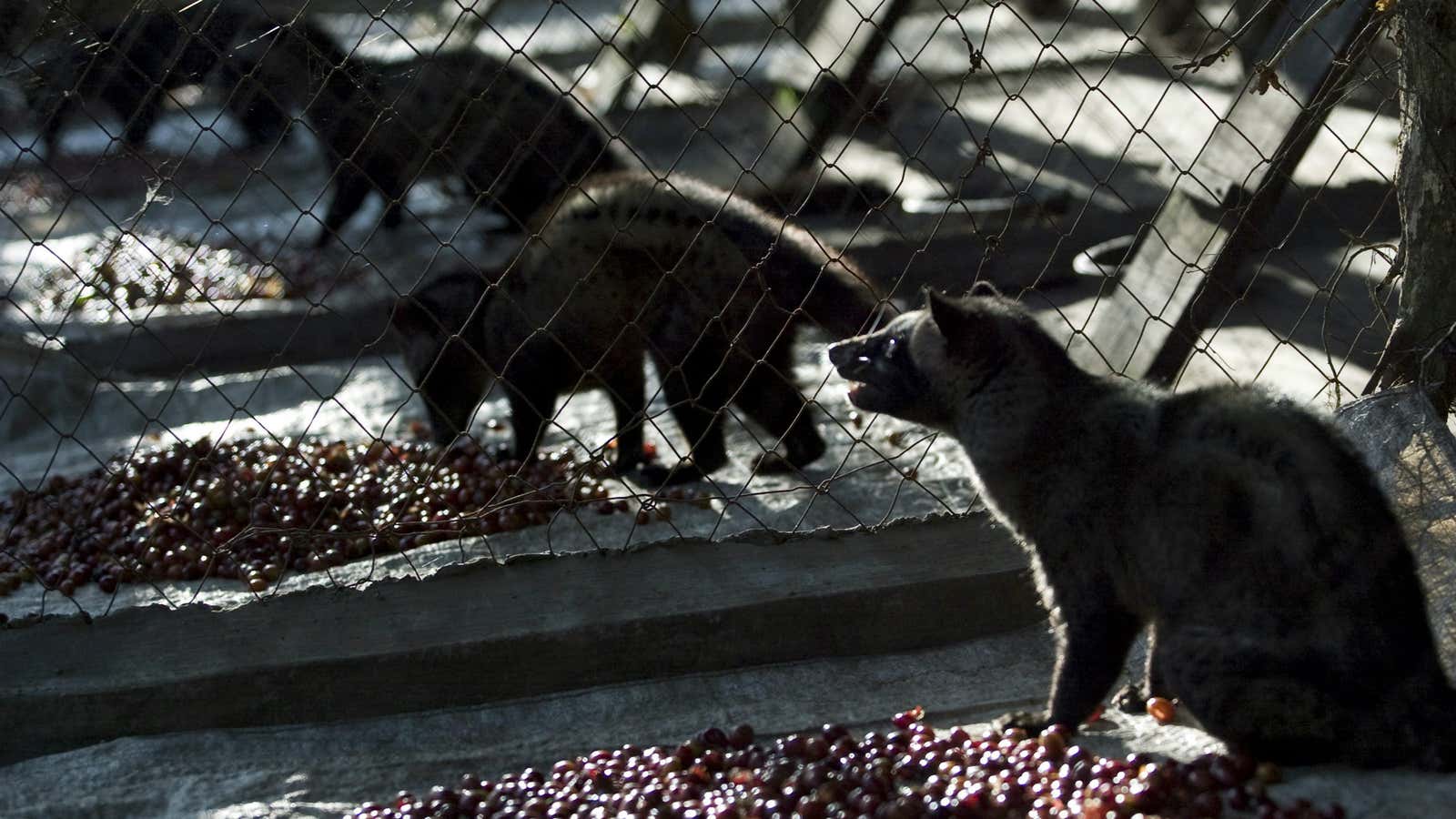Civet coffee, made from coffee beans that have been eaten and partially digested by the weasel-like civet, will no longer be served at several five star hotels in Hong Kong because of the cruel way the animals are treated. Wild civets, native to Indonesia and the Philippines, naturally eat ripe coffee berries, which pass through their digestive tract nearly whole. Their excrement is gathered in the wild, and then the beans are cleaned, roasted and sold for over $100 a pound.
Civet coffee, also known as kopi lewak and “cat poop coffee” (civets resemble cats but are not related), has become an international phenomenon in recent years, thanks to its exclusivity and a flavor that coffee gourmets describe as “smooth, chocolaty and devoid of any bitter aftertaste.” The coffee’s popularity and the high price it commands has spawned a micro-farming industry that makes previously-wild civets much like veal: The civets are caught and placed in solitary cages for years at a time and fed nothing but coffee berries, with their excrement harvested for kopi lewak.
Hong Kong’s Landmark Mandarin Oriental, Intercontinental Hotel and Langham Hotel have taken kopi lewak off their menus in response to a PETA campaign that started in October, according to a report in the South China Morning Post. The hotels did not immediately respond when asked whether the civet coffee ban would spread beyond Hong Kong.
The PETA campaign has found widespread support online. In the words of one Amazon reviewer, “This coffee comes from the poop of a tortured animal.”




